5 parking fines in Singapore you may not know about

In Singapore, parking fines really add up if you don't take caution.
You know how tourists in Singapore think it's a big joke when they buy a T-shirt that says "Singapore is a FINE city" followed by a list of things that you can get fined for. But it hurts most when you're trying to park your car.
In 2015, one Singaporean has to pay a total of $7,000 for his 14 traffic fines! All of them have to do with where he parked.
Here are 5 parking fines in Singapore you may not know you could get booked for.
1. PARKING A VEHICLE ON A FLYOVER
Fine: $70 for light vehicles, $100 for heavy vehicles.
Essentially, don't be a jerk and put other people at risk. Even though the speed limit on a flyover is supposed to be 50km/h, Singaporean drivers tend to ignore it because they're usually entering or exiting an expressway. What's worse, many flyovers in Singapore are winding and you probably won't see a parked vehicle until it's too late.
Needless to say, "parking a vehicle on a ramp leading to a flyover" is illegal as well and carries the same fine.
2. PARKING A VEHICLE IN AN UNDERPASS
Fine: $70 for light vehicles, $100 for heavy vehicles.
Having been a pedestrian for most of my life, my first thought when I saw this traffic fine was "How the hell does a vehicle get into an underpass"? Of course, this isn't referring to a pedestrian underpass, but a vehicular one, like the Bukit Timah Underpass beneath the Farrer Flyover, or Queensway Underpass beneath Commonwealth Avenue.
Just like the flyover, it's quite the jerk move to park in an underpass, because vehicles aren't expecting to stop or change lanes when they're in an underpass. Doing so puts others at risk.
In the same way, "parking a vehicle on a ramp leading to an underpass" is illegal and carries the same fine.
3. STOPPING A VEHICLE ON THE RIGHT SIDE OF A TWO-WAY ROAD
Fine: $70 for light vehicles, $100 for heavy vehicles.
Unless you've lived in countries like United States, or the Philippines, or China for extended periods of time, you know that it's common sense not to stop your vehicle on the right side of a two way road. We drive on the left-hand side of the road, which means that parking on the right side will cause obstruction to oncoming traffic.
Needless to say, if you do park on the left-hand side of the road, you need to make sure you're not "stopping a vehicle without facing the direction in which the traffic may lawfully move". Or, in other words, don't park against traffic!
On a one-way road, you can stop on either side, unless of course there's an unbroken white line (or lines).
4. PARKING A VEHICLE WITHIN 9 METRES OF A BUS STOP
Fine: $70 for light vehicles, $100 for heavy vehicles
Most drivers remember that you can't park within 3 metres of a fire hydrant, or within 6 metres of a junction of any road or street, but did you know you also aren't allowed to park within 9 metres of a bus stop?
Normally the measurement will be taken from the bus stop pole or the tip of the bus stop box, but in the case of a bus bay, the measurement is taken from the tip of the bus bay itself not the bus stop.
Of course, if you're "parked" because your vehicle has broken down or your tyres have been punctured then you're given a free pass.
5. PARKING A VEHICLE ON THE GRASS VERGE OF A ROAD
Fine: $70 for light vehicles, $100 for heavy vehicles
Bet you didn't realise this was illegal, huh? Especially since so many Singaporeans do it when they're in landed property areas where there's only one lane or a narrow two-way street. In all fairness, some drivers who are forced to park on the grass often do so to prevent any obstructions. But there will be those who think that any grass patch next to a road is as good as a parking lot. $70 should tell you otherwise.
In the same vein, "parking a vehicle on the footway of a road" is also illegal and carries the same fine. The simple lesson here? If there's no official parking lot, don't park there. It's not worth it.
But wait, there's more!
As of January 1st this year, repeat offenders will have to pay larger traffic fines for certain offences, mainly parking offences. A "repeat offender" is defined as having received a fine within the last 12 months from the date of his previous offence.
ILLEGAL PARKING FINES: NON-DEMERIT POINTS
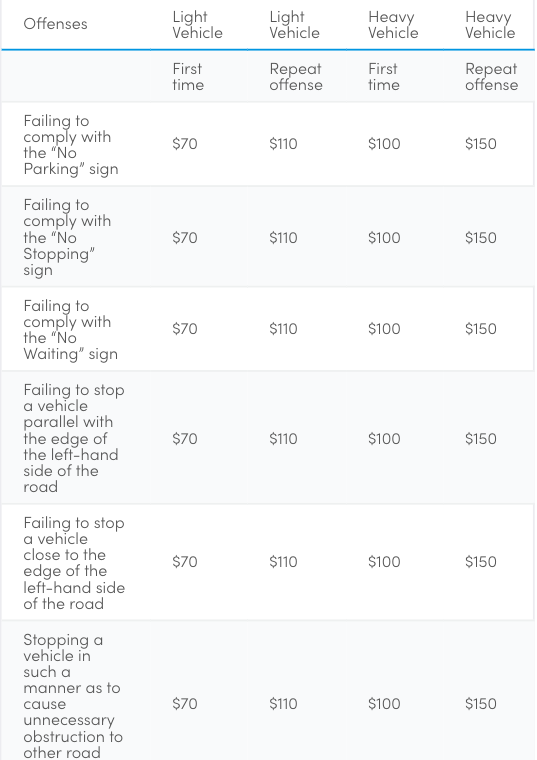
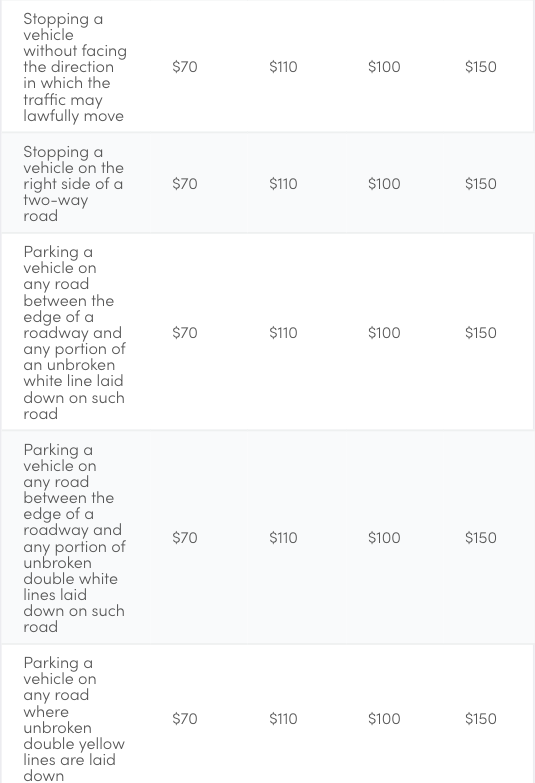


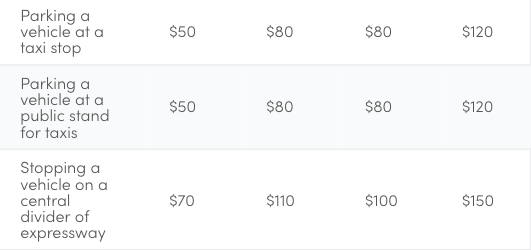
ILLEGAL PARKING FINES: WITH DEMERIT POINTS
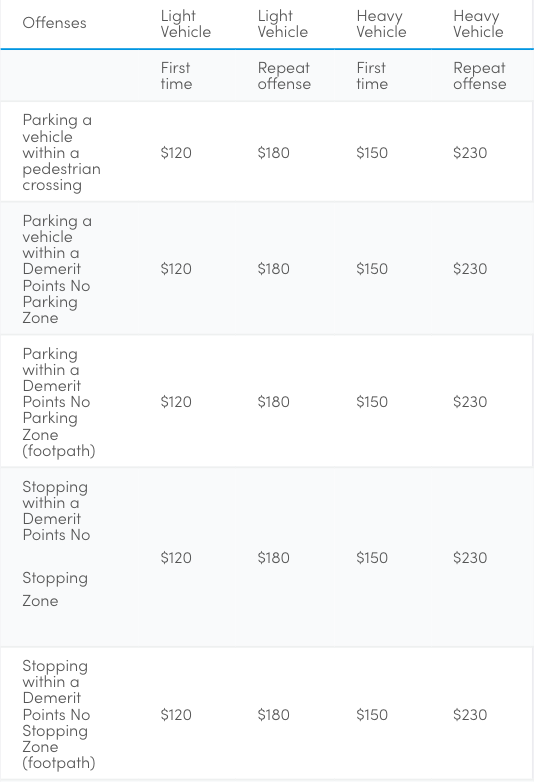
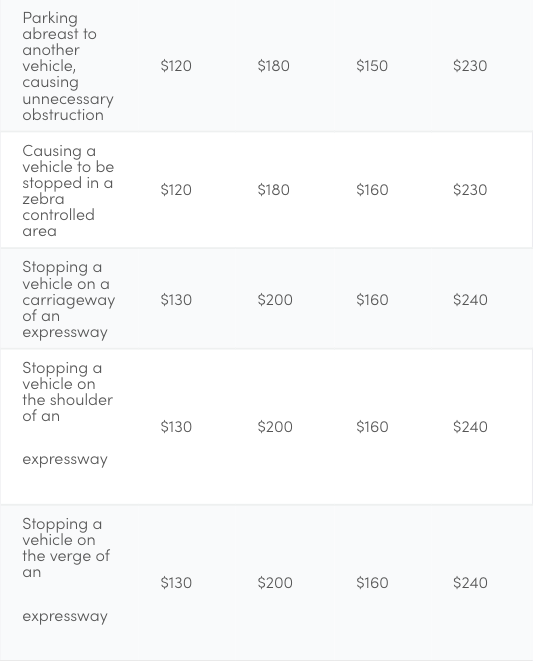
This article was first published in MoneySmart.